
Event 3
Liam Byrne talks to Oliver Bullough
Capitalism and Wealth Inequality
– Discovery Stage
Read moreIs there any coming back from the ways in which capitalism and wealth inequality have shaped the world? Yes, argues Treasury Minister Liam Byrne, but only if we rebuild instead of trying to fix broken systems. Byrne discusses his ideas for radical and meaningful change with writer Oliver Bullough.
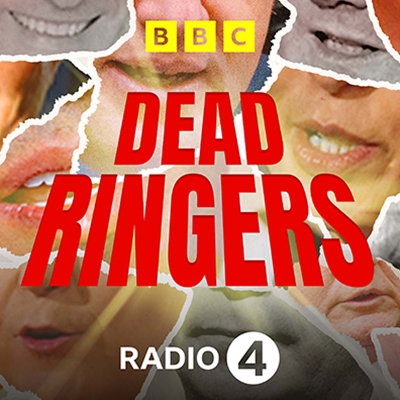
Event 6
BBC Radio 4: Dead Ringers
– Global Stage
Read moreEnjoy a special live recording of Radio 4’s flagship satire show featuring topical sketches and characters drawn from the worlds of celebrity and politics.
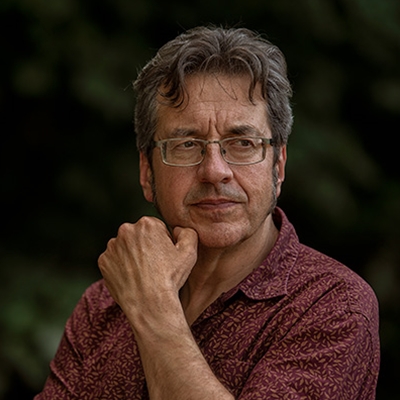
Event 7
George Monbiot
The Invisible Doctrine
– Discovery Stage
Read moreHow can you fight something if you don’t know it exists? We live under an ideology that preys on every aspect of our lives: education, employment, healthcare and leisure; our relationships and mental wellbeing; even the planet we inhabit. So pervasive has it become that it seems unavoidable. But trace it back to its roots, and we discover that neoliberalism was conceived, propagated and concealed by the powerful few. It’s time to bring it into the light – and to find an alternative worth fighting for.
Environmental campaigner George Monbiot's previous book was Regenesis: Feeding the World without Devouring the Planet. His latest is The Invisible Doctrine: The Secret History of Neoliberalism (& How it Came to Control Your Life).
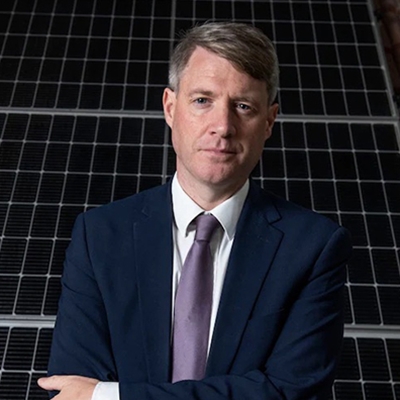
Event 11
Chris Skidmore
Net-Zero: A Future Worth Resigning Over
– Meadow Stage
Read moreFew are better placed to discuss how the UK can meet its climate and biodiversity obligations than Chris Skidmore, the former Energy Minister who resigned as an MP in protest at the government’s plans to expand oil and gas production in the North Sea. Skidmore, who was responsible for signing Net Zero into law and chairing Mission Zero, the largest independent engagement exercise on Net Zero conducted to date, outlines the key ways in which the UK can deliver its commitments as part of the global Net Zero strategy, highlighting not just the challenges but also the opportunities for new jobs and investment in a better way of living. In conversation with Nik Gowing, the Founder and Co-Director of Thinking the Unthinkable, and former BBC News Presenter.
Sponsored by Ty-Mawr Lime
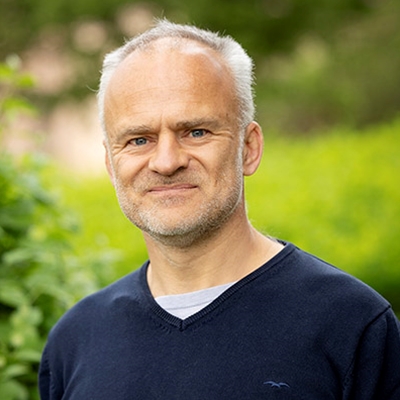
Event 14
Brett Christophers
Why Capitalism Won’t Save the Planet
– Wye Stage
Read moreHow do we save the planet? Political economist and economic geographer Brett Christophers argues that first we need to look at our understanding of capitalism and climate, and accept that saving the planet is not profitable enough for markets and the private sector. Today’s consensus that curbing climate change can be done through green electricity and measures such as ever-cheaper solar and wind power aren’t the key, says Christophers, because investment is driven not by price but by profit. He talks about his illuminating book The Price is Wrong: Why Capitalism Won’t Save the Planet, challenging our long-held views about how to combat climate change.
Sponsored by Practical Action
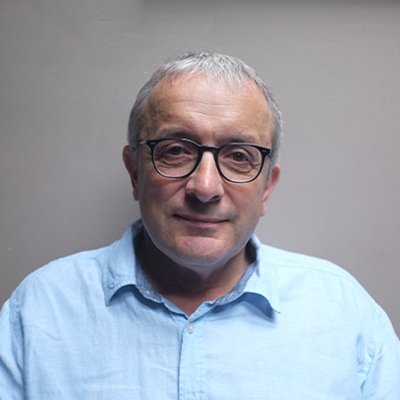
Event 400
Roland Philipps talks to Bronwen Maddox
Roger Casement
– Wye Stage
Read morePioneering human rights campaigner, patriot, traitor, romantic and LGBTQ+ martyr, Roger Casement is one of the 20th century’s most complex and compelling figures. Roland Philipps (author of A Spy Named Orphan) discusses his biography of this contradictory man, Broken Archangel: The Tempestuous Lives of Roger Casement.
Internationally celebrated for unearthing the grotesque violence of the Belgian Congo, Casement won a knighthood for his humanitarian work in the Amazon jungle. But his internal fault lines ran deep, caught between England and Ireland, Protestant and Catholic, contemporary mores and private emotions. He was tried and executed for treason – only now can we fully understand his surprisingly modern and deeply relevant life and legacy.

Event 21
David Van Reybrouck talks to Julia Wheeler
Revolusi
– Wye Stage
Read moreDrawing on hundreds of interviews and eye-witness accounts, David Van Reybrouck (Congo) brings the gripping story of Indonesia’s struggle for independence alive with human detail at every turn in Revolusi: Indonesia and the Birth of the Modern World. Four million civilians had died during the WW2 occupation by the Japanese. In the grim aftermath of the war, another 200,000 people would lose their lives as the Dutch used savage violence to reassert their former colonial regime against the guerrilla war of resistance: the ‘revolusi’. But the Netherlands would be forced to cede all sovereignty, ending 350 years of colonial rule and setting a precedent that would reshape the world.
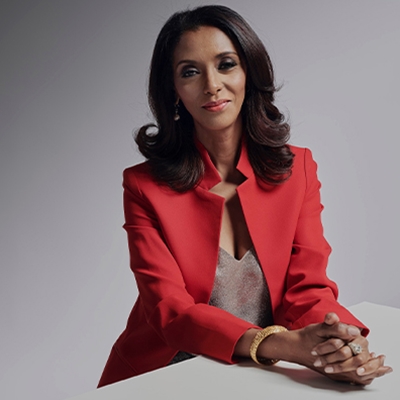
Event 22
Zeinab Badawi talks to Areeba Hamid
An African History of Africa
– Discovery Stage
Read moreIn the history and story of Africa is the history and story of human civilisation, and yet little of the continent’s early and modern story is widely known. Award-winning broadcaster and SOAS president Zeinab Badawi sets the record straight in her seminal book, An African History of Africa: From the Dawn of Humanity to Independence, which takes readers from the origins of our species, through ancient civilisations and medieval empires with remarkable queens and kings, to the miseries of conquest and the elation of independence. She tells Areeba Hamid, joint executive director of Greenpeace UK and the first woman and first person of colour to lead the organisation, about travelling to 30 countries in Africa, the people she spoke to, and why it’s essential the history of Africa is told through the voices of Africans themselves.
South to South Conversations. Fully supported by Open Society Foundations
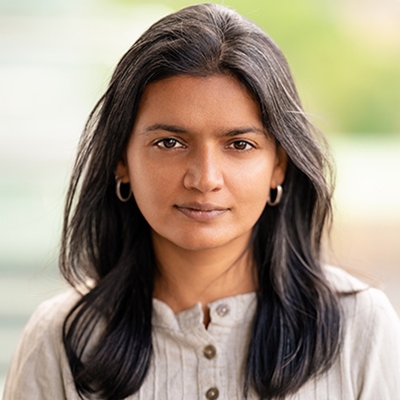
Event 35
Areeba Hamid, Patrick Vallance and guests
The News Review
– Discovery Stage
Read moreStart your day at Hay Festival with our daily news review. Join our leading journalists and special guests as they take us behind the headlines with insider perspectives, insights and an eye on what’s next. Strong coffee recommended!
Among today’s guests are Areeba Hamid, Co-executive Director of Greenpeace UK and former leader of the global finance programme at The Sunrise Project, and Patrick Vallance, former UK Government Chief Scientific Adviser (GCSA) from 2018-2023, Chief Scientific Advisor for COP26 and Chair of the Natural History Museum. Chaired by The Independent editor Geordie Greig.
In partnership with The Independent
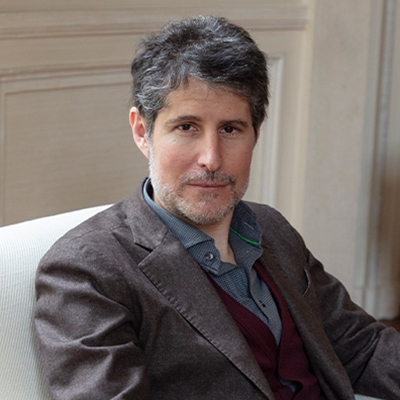
Event 36
Giuliano da Empoli in conversation with Misha Glenny
The Wizard of the Kremlin
– Wye Stage
Read moreWorking at the heart of Russian power, the enigmatic Vadim Baranov – nicknamed the Wizard of the Kremlin – is Putin’s chief spin doctor. Using his background in experimental theatre and reality TV to turn the entire country into an avant-garde political stage, he’s discovered the lines between truth and lies, news and propaganda have become indistinguishable, and he wants out. Political scientist and prize-winning writer Giuliano da Empoli tells journalist Misha Glenny about his all-too-plausible novel The Wizard of the Kremlin, taking readers into the heart of the Kremlin, and how fiction can give us insights into real-world events and figures.
Supported by the Institut français du Royaume-Uni

Event 41
Michael Mansfield talks to Farhana Yamin
The Power in the People
– Discovery Stage
Read morePeople power is unstoppable, says barrister Michael Mansfield KC, and he would know; he has spent his career fighting injustice, persecution and corruption, representing people including the Birmingham Six, Stephen Lawrence’s family, and the families of the victims of the Hillsborough disaster and of the Grenfell fire. Mansfield talks to lawyer Farhana Yamin about his 50 years of fighting for justice, some of his most important cases and why he believes that when people get together they can make lasting and positive change.
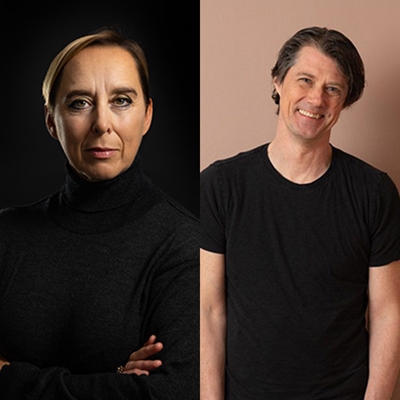
Event 45
Timandra Harkness and Mark Stevenson talk to Martin Wright
AI: Nothing to Fear?
– Wye Stage
Read moreIt’s a looming apocalypse, morphing beyond all human control… or it’s the dawn of a new golden age, when our lives will dramatically improve. What’s our best hope of taming the AI tiger? Writer and comedian Timandra Harkness’ latest book is Technology is not the Problem. She presents the BBC Radio 4 series FutureProofing and How to Disagree. Mark Stevenson is a ‘Reluctant Futurist’, a strategic advisor to governments, investors, NGOs and corporates, as well as a comedy writer. His books, An Optimist’s Tour of the Future and We Do Things Differently, map out proven solutions to current dilemmas. They discuss the looming AI apocalypse with environmentalist Martin Wright.
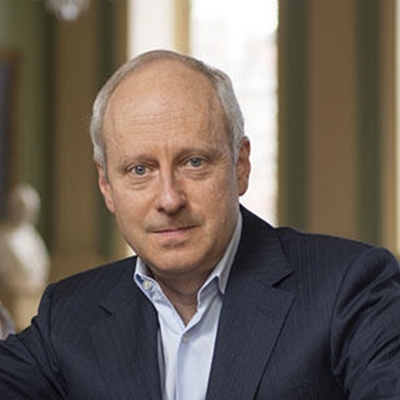
Event 48
Michael Sandel
Hay Festival Members Lecture: Ethics, Democracy and Markets
– Global Stage
Read moreIn our modern world democracy and ethics aren’t always a perfect pair. Throw in the financial markets, and societies built on supposed meritocracy and the result is rising inequality, anger and frustration. Philosopher Michael J Sandel, who teaches political philosophy at Harvard University, gives an insight into how we reconfigure our thinking and our societies. Sandel’s course ‘Justice’ was the first Harvard course to be made freely available online and on television and has been viewed by tens of millions of people. He is author of What Money Can’t Buy: The Moral Limits of Markets, Justice: What’s the Right Thing to Do? and The Tyranny of Merit.

Event 49
Blindboy Boatclub talks to Horatio Clare
Topographia Hibernica
– Wye Stage
Read moreDriving with a donkey stuffed in the back seat; jackdaws pecking brains out through the roof of a confessional box; cat piss and astronauts. This is the world not as you see it, but as it is, twisted from the maverick mind of Blindboy. Stories of the strange unsettlings in the souls of men caught in between the past and the possible; stories of heart-blinding rage and disquieting compassion. The satirist and musician reaches 1.2 million monthly listeners through his show The Blindboy Podcast, which the New York Times has called “a cultural phenomenon”. His new book takes its title from a twelfth-century English manuscript, which dehumanised the people and culture of Ireland to facilitate domination.
Sponsored by Gaucho Ninja
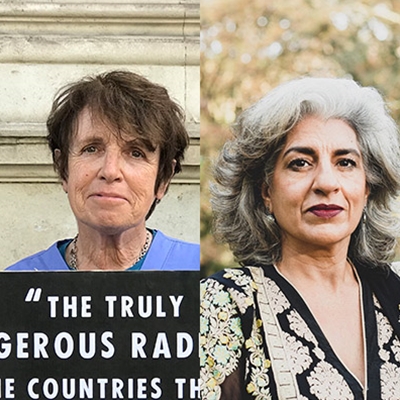
Event 50
Lynne Jones and Farhana Yamin
People Power for Climate Justice
– Spring Stage
Read moreDoctor and aid worker Lynne Jones, and lawyer and climate activist Farhana Yamin, a key architect of the Paris climate agreement, discuss the rise and methods of nonviolent action for political change. In Jones’ book Sorry for the Inconvenience but This is an Emergency she offers a ground-level account of the past five years of UK protests, exploring how and why ordinary citizens have adopted extraordinary methods to confront the climate and nature crises. As one of the world’s most accomplished movement lawyers, Yamin provides both inspiration and a compass for the way movements can use the law – and must sometimes break it – to bring about social justice. The concept of movement lawyering was first proposed by the US Center for Constitutional Rights a decade ago. She shares her expertise in an essay in the collection The Revolution Will Not Be Litigated.
Sponsored by Cape Cornwall Trading
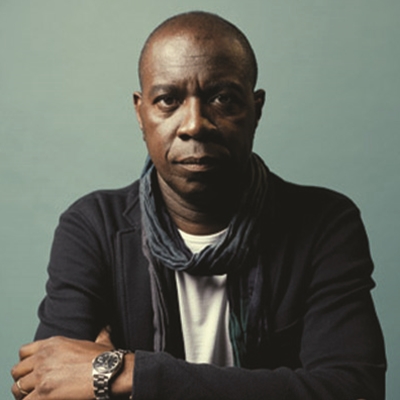
Event 52
Clive Myrie talks to Kirsty Lang
Everything is Everything
– Global Stage
Read moreAs a Bolton teenager with a paper round, Clive Myrie read all the newspapers he delivered from cover to cover and dreamed of becoming a journalist. Now with a long standing career in reporting, the BBC news anchor, award-winning presenter and host of Mastermind tells how his family history has influenced his view of the world. He introduces his Windrush generation parents, a great grandfather who helped build the Panama Canal, and a great uncle who became a prominent detective in Jamaica. He reflects on how being Black has affected his perspective on issues he’s encountered in thirty years reporting on some of the biggest stories of our time.
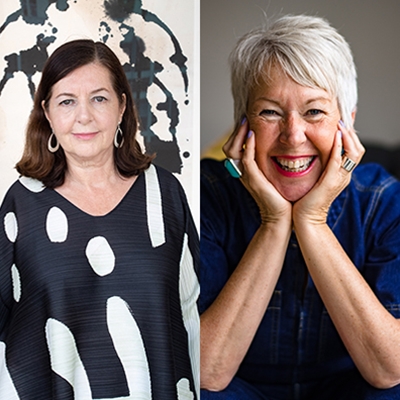
Event 54
Lucy Ryan talks to Dorothy Byrne
Revolting Women
– Meadow Stage
Read moreTwo professional women discuss the triple-whammy of discrimination faced by women over 50 in work: they are not male, young or linear in their career paths. As a result, they are leaving corporate life, and taking their abundant wisdom, energy and ambition with them.
Leadership coach Dr Lucy Ryan conducted a unique doctoral research project into professional women at midlife. In her book Revolting Women, she argues that assumptions about declining midlife motivation and energy are often not true for women, highlights why women walk out of corporate life and shows how businesses can retain and develop this invaluable talent pool. Dorothy Byrne, President of Murray Edwards College, Cambridge (a college for women), was previously Head of News and Current Affairs at Channel 4, where she produced films on rape, domestic violence, ageism at work, fertility and the effects of poverty. She is author of Trust me, I’m not a Politician.
In association with the University of Cambridge
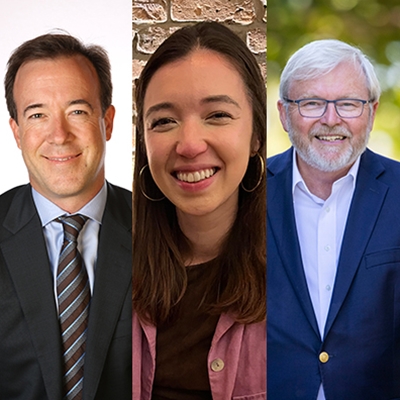
Event 56
James Curran, Kevin Rudd and Amy Hawkins talk to Emma Graham-Harrison
Australia and China: Maverick or Model?
– Discovery Stage
Read moreDelve beneath panicky headlines about China and our relationship with it in this discussion between James Curran, Kevin Rudd and Amy Hawkins. The panel discusses what a future relationship between the UK, Europe and China looks like, and the best ways in which to both push back and quietly stabilise relationships with the Asian country.
In partnership with Adelaide Writers’ Week

Event 59
Planet Assembly 1: A Circular Economy for the Future
A Thought Laboratory
– Creative Hub
Read moreBring your best ideas to this solutions-focused workshop session. Facilitated by sustainability entrepreneur Andy Middleton and joined by key speakers to be announced, we’ll look at the key issue of the economy, discussing the scale of the issue and a range of solutions.
Speakers include remarkable individuals leading climate and biodiversity resilience projects, igniting hope and progress in their neighbourhoods and the wider community. We want you to share your ideas and to be inspired by those making a difference. Be part of the change in this two-hour thought laboratory.
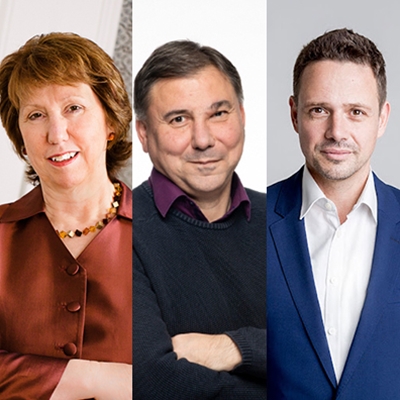
Event 61
Catherine Ashton, Ivan Krastev and Rafał Trzaskowski talk to Misha Glenny
Europe: Reluctant Superpower No More?
– Global Stage
Read moreSurrounded by a necklace of crises from Ukraine via the Middle East to the Maghreb, Europe has been signalling that it must play a more active role on the global stage, but it has sat passively as China and the US direct the course of events. As we approach the US presidential election, does Europe have the strength, ability and will to assert itself against an unpredictable mixture of populism, war, technological advance and economic uncertainty? Misha Glenny, journalist and Rector of the Institute for Human Sciences in Vienna, asks the EU’s former Vice-President, Baroness Catherine Ashton, political scientist Ivan Krastev and Rafał Trzaskowski, Polish politician and current city mayor of Warsaw, whether Europe can weather the approaching storms.
The Future of Europe Debate co-organised by the Institute for Human Sciences (IWM Vienna)
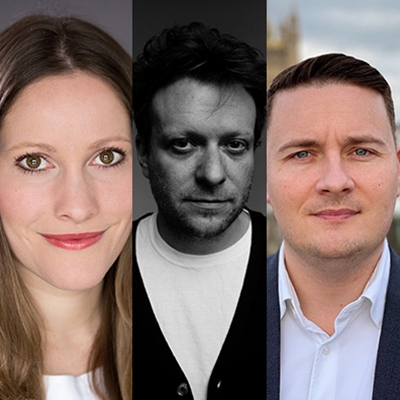
Event 74
Laura Bates, Peter Pomerantsev, Wes Streeting and guests
The News Review
– Discovery Stage
Read moreStart your day at Hay Festival with our daily news review. Join our leading journalists and special guests as they take us behind the headlines with insider perspectives, insights and an eye on what’s next. Strong coffee recommended!
Among today’s guests are activist and journalist Laura Bates, founder of the Everyday Sexism Project, journalist and author Peter Pomerantsev, and Labour MP and Shadow Health Secretary Wes Streeting. Chaired by The Independent editor Geordie Greig.
In partnership with The Independent.
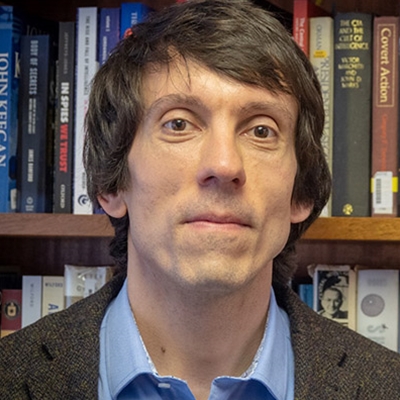
Event 75
Luca Trenta talks to Oliver Bullough
The President’s Kill List
– Meadow Stage
Read moreOn 3 January 2020, Iranian General Qassem Soleimani was killed by a drone strike ordered by then US President Donald Trump. The Trump Administration, while taking credit for the killing, denied that it amounted to an assassination. Dr Luca Trenta, US Foreign Policy specialist and associate professor of International Relations at Swansea University, gives an overview of the US government’s involvement in the assassination of foreign officials from the early Cold War to Soleimani. In conversation with journalist Oliver Bullough, he discusses The President’s Kill List: Assassination in US Foreign Policy Since 1945, detailing the assassination plots, the methods (from poisoned cigars and airplane accidents to the support of local proxies), the justifications and the denials.
In association with Swansea University
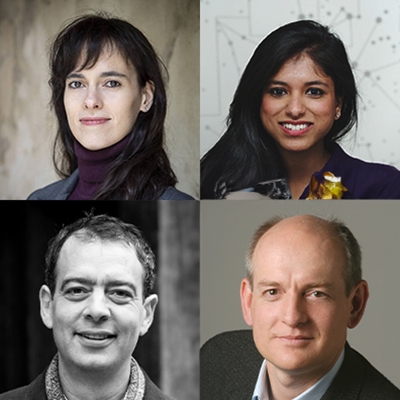
Event 78
Madhumita Murgia, David Runciman, Stuart Russell and Carissa Véliz talk to Carl Miller
Humans vs AI
– Global Stage
Read moreIs AI something we need to be terrified of, or something that will provide an answer to all our ills? The truth is somewhere in the middle, as our panel of experts tells author and scholar Carl Miller. Hear about how AI will affect humans: take a look at the past, present and future potential of the technology, as well as how and where we live alongside AI, and where and how we resist its presence.
Miller speaks to Madhumita Murgia, the first artificial intelligence editor for the Financial Times; David Runciman, professor of politics at Cambridge University; Stuart Russell, director of the Center for Human Compatible Artificial Intelligence at the University of California, Berkeley; and Carissa Véliz, an associate professor at the Faculty of Philosophy and the Institute for Ethics in AI at the University of Oxford.
Sponsored by the Society of Indexers

Event 81
Wes Streeting talks to Samira Ahmed
One Boy, Two Bills and a Fry Up
– Global Stage
Read moreThe front-bench Labour MP grew up on a council estate in Stepney, East London, the son of teenage parents. His maternal grandfather Bill, an unsuccessful armed robber, spent time behind bars, as did his grandmother, who was also a political campaigner. He brings to life the struggle and heartache of his parents’ and grandparents’ lives in poverty; the choices they had to make between feeding the meter and feeding the family. He is also passionate about the life-changing power of education. Encouraged by a series of inspirational teachers, he won a place at Cambridge, and later became head of education at Stonewall. He talks to BBC broadcaster Samira Ahmed about his journey to become an elected MP in 2015 and now Shadow Health Secretary.

Event 82
Peter Pomerantsev and Maria Ressa talk to Oliver Bullough
On Propaganda
– Discovery Stage
Read morePropaganda, fake news and the fight for the narrative define contemporary and past wars and society. How do we identify and combat propaganda, and how should we move forward from it? Our panel discuss how to deal with biased and misleading communication with Oliver Bullough, author of Butler to the World.
Peter Pomerantsev is author of How to Win an Information War: The Propagandist who Outwitted Hitler. A Soviet-born British journalist and TV producer, he is Senior Fellow at the London School of Economics’ Institute of Global Affairs. Nobel Peace Prize-winner Maria Ressa is author of How to Stand Up to a Dictator: The Fight for Our Future. Co-founder and CEO of the Filippino online news site Rappler, she is a Fellow at Columbia’s new Institute of Global Politics.
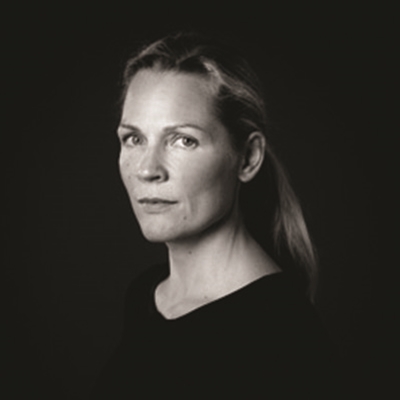
Event 91
Åsne Seierstad talks to Sarfraz Manzoor
The Afghans
– Wye Stage
Read moreNorwegian journalist Åsne Seierstad (The Bookseller of Kabul, Angel of Grozny) introduces us to three people whose lives have been shaped by the fall and rise of the Taliban – Jamila, Bashir and Ariana – as well their families, friends, foes and co-fighters. Jamila is a prominent women’s rights activist; Bashi is a Taliban commander; Ariana is a law student who had one semester left when the Taliban came to power.
Drawing on her thought-provoking new book The Afghans: Three Lives Through War, Love and Revolt, Seierstad shows us their stories – encompassing love, loss, revolution and war as well as the everyday rhythms of family life. Experience the lead up to the Taliban retaking power in 2021, how the first year of their rule unfolded, and where this leaves Afghans today and tomorrow. Seierstad talks to writer and journalist Sarfraz Manzoor.
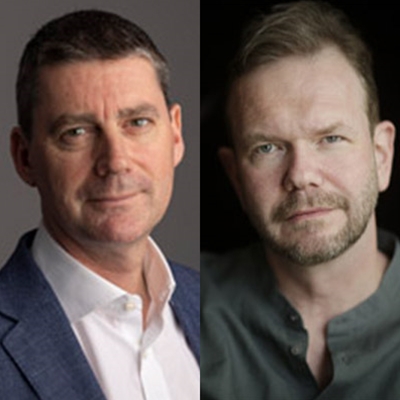
Event 93
Peter Foster and James O’Brien
Brexit Britain
– Global Stage
Read moreBrexit: who is responsible, how did it all go wrong and what can we do? As more and more people discover that the Brexit they were sold was based on falsehoods, FT public policy editor Peter Foster’s What Went Wrong With Brexit dispels the myths. Most importantly, he shows what a better future for Britain might look like.
Bold and incisive as ever, LBC’s James O’Brien reveals the shady network of influence that has made the UK a country of strikes, shortages and scandals in How They Broke Britain. He maps the web that connects dark think tanks to Downing Street, journalists complicit in misleading the public, and media bosses pushing their own agenda. The journalists discuss what Brexit promised but failed to deliver, with journalist Emma Graham-Harrison.
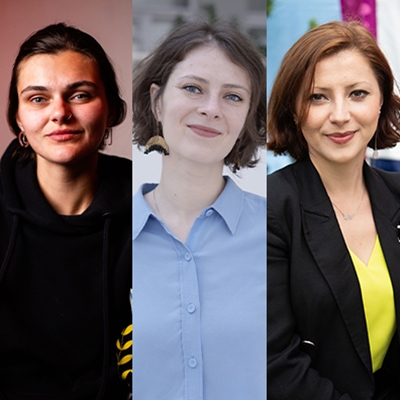
Event 95
Sofia Cheliak, Sasha Dovzhyk and Olesya Khromeychuk talk to Peter Pomerantsev
What’s Going on in Ukraine?
– Wye Stage
Read moreIt has now been more than two years since Russia invaded Ukraine, and the conflict is still ongoing, even though it garners fewer headlines than it used to. Writers Sofia Cheliak, Sasha Dovzhyk and Olesya Khromeychuk discuss what is happening currently in Ukraine, how to keep documenting the war and how to combat propaganda that undermines the war effort. Cheliak, Dovzhyk and Khromeychuk are all contributors to the book Ukraine Lab: Global Security, Environment, Disinformation through the Prism of Ukraine: 39 (Ukrainian Voices). They talk to journalist and author Peter Pomerantsev.
Hay Festival Lviv BookForum Series supported by Open Society Foundations
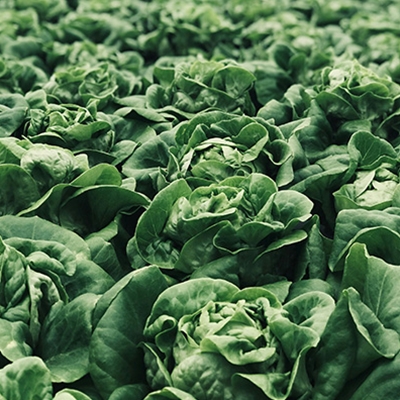
Event 98
Planet Assembly 2: Food for the Future
A Thought Laboratory
– Creative Hub
Read moreBring your best ideas to this solutions-focused workshop session. Facilitated by sustainability entrepreneur Andy Middleton and joined by key speakers to be announced, we’ll look at the key issue of food production, discussing the scale of the issue and a range of solutions.
Speakers include remarkable individuals leading climate and biodiversity resilience projects, igniting hope and progress in their neighbourhoods and the wider community. We want you to share your ideas and to be inspired by those making a difference. Be part of the change in this two-hour thought laboratory.
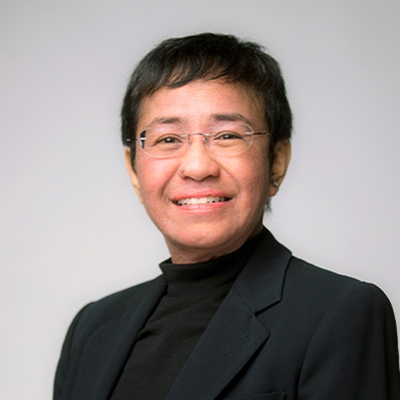
Event 100
Maria Ressa talks to Misha Glenny
How to Stand up to a Dictator: The Fight for our Future
– Global Stage
Read moreNobel Peace Prize winner Maria Ressa, who won the accolade in 2021 for denouncing the regime of Philippine president Rodrigo Duterte, speaks to journalist Misha Glenny about her work. Her latest book How to Stand Up to a Dictator is a call to the world to raise awareness about social media misinformation and a manifesto about press freedom. Ressa was arrested by Philippine authorities in 2019; her conviction for cyberlibel was seen by many as an attempt to silence her criticism of Duterte’s government.
South to South Conversations. Fully supported by Open Society Foundations

Event 102
Silvia Vasquez-Lavado talks to Kirsty Lang
In the Shadow of the Mountain
– Spring Stage
Read moreActivist Sylvia Vasquez-Lavado discusses her inspiring work against sexual violence and her memoir In the Shadow of the Mountain with journalist Kirsty Lang. A businesswoman named one of the twenty most influential Latin Americans in Silicon Valley, Vasquez-Lavado was struggling with past trauma when she discovered mountaineering. In 2014 she founded Courageous Girls, a non-profit organisation that helps survivors of sexual abuse and human trafficking find their inner strength through mountaineering. The following year she became the first Peruvian woman to reach the summit of Sagharmatha (Mount Everest), and in 2018, the first woman from the LGTBQ+ community to climb the seven highest summits on each continent.
South to South Conversations. Fully supported by Open Society Foundations and by the British Council
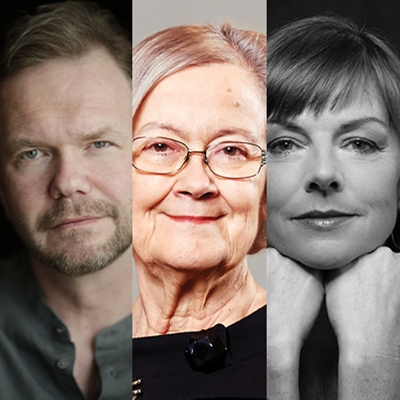
Event 112
James O’Brien, Brenda Hale and Doon Mackichan
The News Review
– Discovery Stage
Read moreStart your day at Hay Festival with our daily news review. Join our leading journalists and special guests as they take us behind the headlines with insider perspectives, insights and an eye on what’s next. Strong coffee recommended! Among today’s guests are journalist James O’Brien, judge Lady Hale and comedian Doon Mackichan.
Doon Mackichan is best known for her comedy characters in the hugely popular Brass Eye, Smack the Pony and Toast of London. Lady Hale is former President of the UK Supreme Court and James O'Brien is a British radio presenter, podcaster and author. Chaired by The Independent chief books critic Martin Chilton.
In partnership with The Independent.